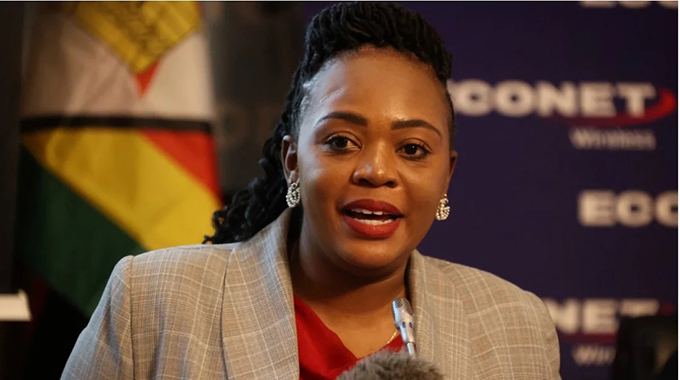99-year lease is strategic
Morris Mpala, MoB Capital Ltd
GIVEN the new developments on the SI 64 of 2016(imports restrictions) this calls for a speedy tripartite meeting between the farmers, Government and financial institutions
If the motivation of the (in) famous SI 64 of 2016 is to increase production then let the bankability of these leases be at the fore. Production without farming is nonsensical.
The SI 64 trades delicately on socio-political-economic issues.
The Government has a dilemma between informal populace and productive sector. With the introduction of SI 64 one hopes it doesn’t create destitutes, smuggling syndicates, oligopolistic cartels and high prices by local producers but tempts cost effective production levels, creates jobs and sustains communities in the long run.
First and foremost an audit on farm infrastructure is required to ascertain current balance sheets on these farms and any further improvements that will be made for future compensations if push comes to shove. A data base created with a comprehensive inventory will form the basis of risk management.
Then follows insurance on property and a property register created including the beneficiaries including life assurance policies to mitigate risks.
Mind change is required because farming is a business not a pastime. Owning land as a fashion statement has to be discouraged. In addition, beneficiaries need to develop the land, freebies should be done away with. It’s a business with a model on profitability, sustainability and preserving the scarce strategic resource.
Rentals on these create an underlying cornerstone.Based on the ‘use it or lose it’ principle. We can’t be absent farmers or all be entrepreneurs.
Many are called but few are chosen let the willing and able few do it and others look elsewhere for business opportunities.
Pooled lease rentals should act as security should a beneficiary fail to honour their financial obligations or if compensation for improvements is required.
Rentals have to be kept or shared among participating banks proportionally (as deposits) and aid funding to farmers. For every funding done the bank receives a certain amount from the pooled rentals as an incentive (as mere deposits) on a pro rata basis.
We need technocrats to give correct figures for rentals, cost of acceptance to offer letters, insurance and assurance, trainings, compensation and cost and tenor of funding for agriculture.
Those that can’t produce lose the land to the Government and it goes back into the land bank registry. The Government then re-allocates the repossessed land and compensates where applicable.
Those beneficiaries that can’t repay their loans have to lose their title deeds to the respective banks. Then the Government compensates the bank in question and land is repossessed by Government for onward allocation to new beneficiaries to balance land politics.
All new farmers have to undergo a normal credit vetting system to deter perennial funding defaulters from accessing not just land but also finance given their past credit history.
In case of death, benefit should be negotiated to nominated beneficiaries or given back to the Government land bank for redistribution.
The above principle gives value back to the land and once value is restored that is the alpha of land economics. While communal lands need to be monetised to unlock vast potential.
Food security you just produce to satisfy your hunger that is produce out of necessity.
Food integrity which determines what we produce, how, when and which quality and quantity of food we need and for which markets might reduce GMO productions.
The Government has to limit its role to regulatory and advisory thus creating a conducive environment for production to kick start in earnest for example export incentives, guarantees, distribution, ease of doing business, utilities costing and supply, infrastructure, La Niña threats, compensation, asset registry, credit registry, demarcations, ready paying markets etc.
The Government must establish research and development, real time data (facts and figures) to influence policy formulation and an active hands on approach to agriculture that responds real time and influenced by tangible evidence on the ground. All else should be left to strategic stakeholders the bankers, private sector and individual farmers to thrash a long term viable solution in a win-win approach to all.
This land we are talking about is a finite resource, an emotional and political subject but above all an economical issue that needs frank and factual discussion.
Any outstanding issues have to be brought to finality forthwith from redistribution, ownership, skills transfer, knowledge bank, compensation to funding mechanism. Cash talk kills no friendship we expect the negotiating tripartite table to be a concise, candid and economic discussion as it defines a financial revolution that has a bearing on the economy at large .
To cap it all it is a generational legacy that will be cherished by future generations therefore we cannot afford trial and errors or getting it wrong altogether.
Once the above has been done let’s put land back onto the market. Let’s pay for land and let it be sold to willing buyer, first come first serve basis depending on one’s ability to sustain the operations.
Happy 2016/17 farming. If you haven’t started preparations you are late triple your efforts now!!
IF YOU LIVE IN BYO PLEASE CONSERVE WATER. IF YOU LIVE IN ZIMBABWE PLEASE USE ELECTRICITY SPARINGLY: SOS (SWITCH OFF SWITCHES).IF YOU LIVE ON PLANET EARTH PLEASE PRESERVE THE ENVIRONMENT
l Morris Mpala is the managing director of MoB Capital, a thriving Bulawayo-headquartered micro-finance institution with footprint across the country.









Comments